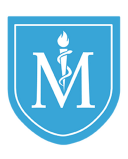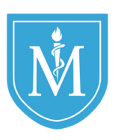Addiction
Why Addiction Treatment Isn’t “One Size Fits All”
There are many effective strategies for resolving alcohol or drug addiction.
Posted March 3, 2020 Reviewed by Abigail Fagan
By Lee Holley, LMSW, LCDC, PRSS and Vaughan Gilmore, LCSW, LCDC
The cycle of addiction remains untreated for a large group of Americans due to lack of awareness that recovery is possible and that there are multiple avenues to get there.
The good news is that recovery is attainable, and research shows that over 22 million Americans have successfully resolved a significant drug or alcohol problem using a variety of traditional and non-traditional means.
For many individuals, successful recovery includes participation in a mutual support program such as Alcoholics Anonymous (AA) or Narcotics Anonymous (NA). But for individuals that have not found success with 12-Step programs or are not willing to consider this as an option, a growing number of recovery pathways are available.

What is recovery?
SAMHSA defines recovery as “a process of change through which individuals improve their health and wellness, live a self-directed life, and strive to reach their full potential.” The only requirements are a desire and willingness to change and for most abstinence is one small part of recovery.
The American Society of Addiction Medicine (ASAM) defines recovery as “an active process of continual growth that addresses the biological, psychological, social and spiritual disturbances inherent in addiction.” As popular opinion about the nature of addiction shifts from a moral failing to a health issue, the conversation should also include an understanding of the recovery process.
The goal of addiction treatment is sustained remission of a substance use disorder and this can be achieved along many pathways. Recovery routes include clinical interventions with a focus on skills development, treatment for problematic patterns of thinking and behaviors, and pharmacotherapy to reduce cravings and relapse risk. For some individuals there is a natural recovery process that does not include any formal support or treatment, others find online support in chat rooms to be the best solution, and for a growing number of individuals, alternative recovery programs are part of the process of change.
Recovery may not involve any clinical intervention or treatment and instead be primarily rooted in peer support, a faith community, or recovery coaching services. If the shared goal of treatment professionals, family members, and individuals suffering from addiction is recovery then all these pathways and more are legitimate strategies for resolving a significant drug or alcohol problem.
“Meeting people where they are”
Traditional 12-Step-based treatment centers are incredibly successful and valuable for many, but for those still in a precontemplation stage of change or in denial of the seriousness of their substance use, a 12-Step only approach can deter them from seeking treatment and prevent them from engaging in any recovery behaviors.
Family members and professionals can continue to convey the seriousness of the addictive behavior while also encouraging their loved one to choose their own pathway to health.
The best recovery pathway is one that an individual is willing to pursue.
If the Buddhism-inspired Refuge Recovery program or the Rational Emotive Behavioral Therapy SMART Recovery program are of more interest to an individual, these options should be encouraged and explored.
Not everyone who chooses to forgo the 12-Step recovery route is simply “in denial” or “not in enough pain yet.” If we follow the idea that an individual’s “bottom” is when they “stop digging,” as opposed to believing that people are required to have severe legal, health, or relational consequences to be ready for help, then we may be able to save countless individuals and their families tremendous amounts of unnecessary pain and misery.
Recovery is not “one-size-fits-all”
Individuals have a right to determine the best pathway for their personal recovery and there are many effective strategies for addressing substance use disorders. What works for one individual might not work for the next person and treatment professionals can assist clients in identifying an appropriate recovery pathway that meets their needs depending on the severity of addictive behavior and wellness goals.
Historically the addiction treatment industry has offered only a 12-Step program of recovery, but this may not be as effective or appealing for those with a mild substance use disorder or individuals with co-occurring psychiatric disorders. While 12-Step programs can be incredibly beneficial for some, individuals who are unable or unwilling to explore the 12-Step approach are presented with few treatment options that do not at least include a fair amount of 12-Step programming. It is the ethical responsibility of treatment programs and professionals to offer clients choice and an opportunity to explore multiple options.
When considering peer-based support, 12-Step programs remain the most widely utilized with a large network available to the newcomer. Many times, an individual will come to this conclusion on their own when they are offered the opportunity of choice. Clients are more likely to continue engaging with a recovery pathway when it matches their goals and values.
Legal precedent for the necessity of multiple recovery pathways
A recent legal ruling by the British Columbia (BC) Human Rights Tribunal illustrates the importance of access to multiple recovery programs. Nurse Byron Wood reached a settlement with his former employer, Vancouver Coastal Health, after being fired from his job for refusing to attend Alcoholics Anonymous meetings as a condition of his employment. Mr. Wood reported that he offered to participate in alternative and secular recovery organizations, but that these requests were ignored.
Similar legal rulings have been reached in lower courts in the United States. The Programs contained in 12-Step recovery literature are non-denominational, areligious, and refer to a broad, open-ended, spiritual way of life based on connection with a Higher Power of one’s own understanding. Many 12-Step meetings (and individuals in said meetings) regularly express sentiments that are either explicitly religious or contain religious undertones.
These factors can be problematic for someone who has experienced religious trauma in their past or upbringing. It is not only ineffective to force individuals to attend 12-Step meetings, but there is now a considerable amount of legal backing to support the idea that to do so is unethical.
Multiple paths with the same goal—recovery
While not exhaustive, the list below illustrates a wide variety of support available for those looking to address their drug or alcohol problem.
- 12-Step Programs for AA, NA, and CA
- SMART Recovery
- Refuge Recovery
- Celebrate Recovery
- Women for Sobriety
- LifeRing
- Medication Assisted Treatment (MAT)
- Online Support Groups for Alcohol and Opioid Use
- Moderation Management
- Harm Reduction
- Psychology Today Therapy Directory
About the Authors:
Lee Holley, LMSW, LCDC, PRSS, is a Rehabilitation Specialist and Peer Recovery Support Specialist at Pathfinder, where he provides vocational counseling and recovery coaching services, in addition to facilitating Chemical Dependency Groups.
E. Vaughan Gilmore, LCSW, LCDC, is the Director of Addictions Services at Menninger, where she leads a team of approximately 15 licensed chemical dependency counselors.




